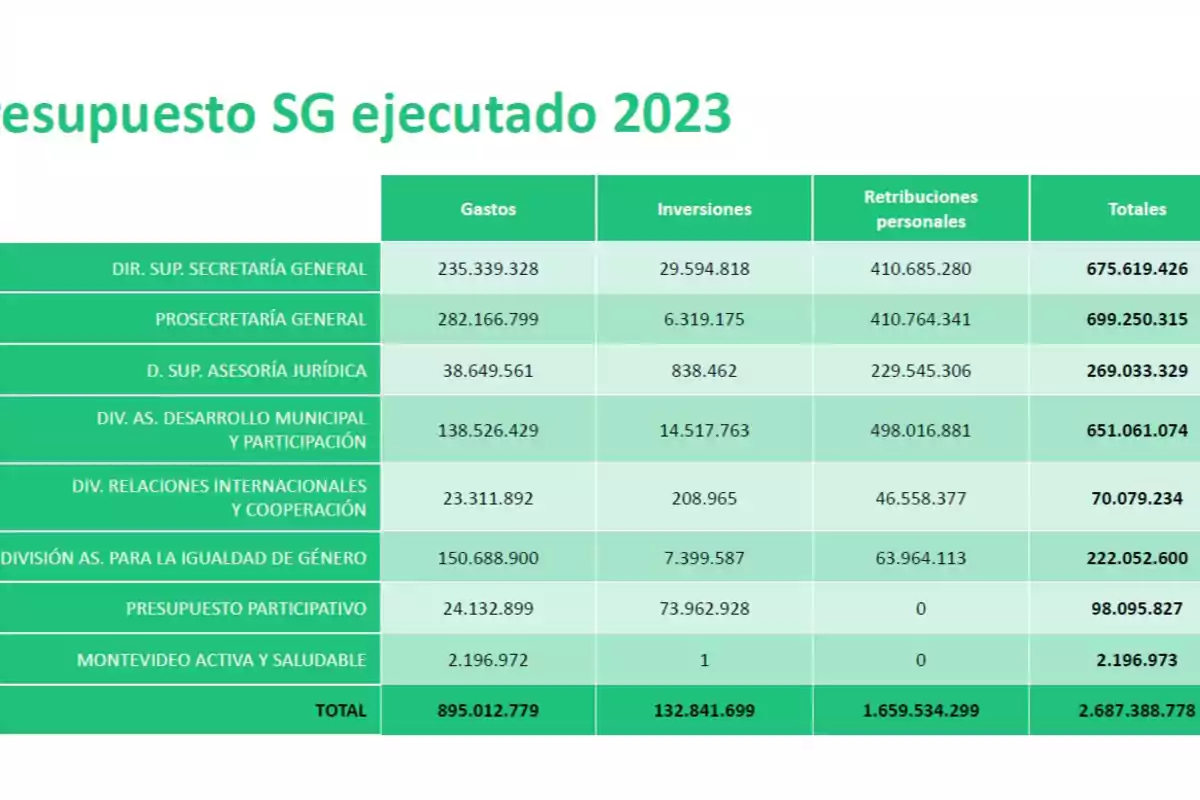
Deficit, bureaucracy, and failure: Montevideo closed 2024 with a record deficit
It amounts to US$90 million and represents the result of 35 years of political hegemony in Montevideo
The fiscal situation of the Montevideo City Hall reached its most critical level in years in 2024. According to the Accountability Report presented by the departmental government, the budget deficit exceeded US$ 90 million, marking an unprecedented financial deterioration.
In 2022, the municipality had closed with a deficit of just US$ 1.9 million, a figure that increased to US$ 11.3 million in 2023. However, it was in 2024 when the imbalance skyrocketed, multiplying almost fiftyfold in just two years.
The Frente Amplio administration—initially led by the current vice president, Carolina Cosse, and currently by Mauricio Zunino—incurred expenses that far exceeded revenues from taxes, fees, tariffs, and national transfers. The total expenditure for the fiscal year was 90 million dollars higher than the actual revenue, deepening the fiscal deficit.
Excessive bureaucracy
Within the General Secretariat, the Senior Management was one of the areas with the greatest budgetary weight, with a total expenditure of 675 million pesos, which included 410 million in personnel compensation, 235 million in operating expenses, and 30 million in investments.
The Deputy General Secretariat executed 699 million pesos, of which the majority also correplied to salaries (410 million) and operating expenses (282 million), while only 6 million went to investments.
You may also be interested in reading about former leaders and their uncomfortable silences
The Legal Advisory Office managed 269 million pesos, where remuneration expenses (229 million) predominated and a smaller margin went to operations and investments.

In the area of Municipal Development and Participation, expenditure amounted to 651 million pesos, with 498 million allocated to salaries, 138 million to current expenses, and just over 14 million to neighborhood infrastructure and co-managed public spaces.
International Relations and Gender Equality: outrageous budget
The International Relations Division executed 70 million pesos, almost double the amount initially authorized. The majority (46 million) was allocated to remuneration, while operating expenses and investments were lower.
You may also be interested in a perspective on social democracy
Meanwhile, the Division for Gender Equality, considered a political priority for this ultra-globalist administration, executed 222 million pesos, of which 150 million went to current expenses, 63 million to salaries, and 7 million to investments.
The Participatory Budget, intended to finance projects voted on by citizens, executed almost 100 million pesos, mainly in works and investments.
Montevideo leads the tax burden in the region
The Uruguayan capital, where 40% of the population is concentrated, already bears one of the highest departmental tax burdens in Latin America. According to the 2023 Departmental Tax Burden report from the UCU Economic Situation Observatory, the capital leads the region in fiscal pressure on commerce and services.
The study warns that "Montevideo applies a set of departmental taxes—such as the Property Tax, the General Municipal Fee, and Business Licenses—that represent an effective burden far higher than that of Buenos Aires, Santiago, or São Paulo," both on real estate and on economic activity.
You may also be interested in the logbook of a communist navigator facing state power
Meanwhile, the Chamber of Commerce and Services of Uruguay, in its 2023 annual competitiveness report, concluded that Montevideo is "the most expensive city in the region to open, maintain, and operate a business, due to the accumulation of fees, permits, and municipal contributions," surpassing cities with much larger economies.
Montevideo in free fall
Montevideo is currently facing an extremely critical situation. On one hand, there is a growing tax pressure that suffocates both citizens and businesses, creating an environment that is not conducive to investment and job development.
On the other hand, a municipal administration that is ideological, inefficient, opaque, and incapable of responsibly managing public resources.
In the coming days, Mario Bergara will officially take office for the 2025–2030 period, marking the eighth consecutive Frente Amplio administration at the helm of the Montevideo City Hall.
Forty years of the same political project have accumulated a fiscal deficit that today reaches historic levels, reflecting a squandering of taxpayers' money.
The record deficit in 2024 is the direct consequence of the uncontrolled growth of the bureaucratic apparatus to implement public policies that favor progressive social agendas. Montevideo is on the verge of financial collapse: it needs real, urgent, and deep change.
More posts: